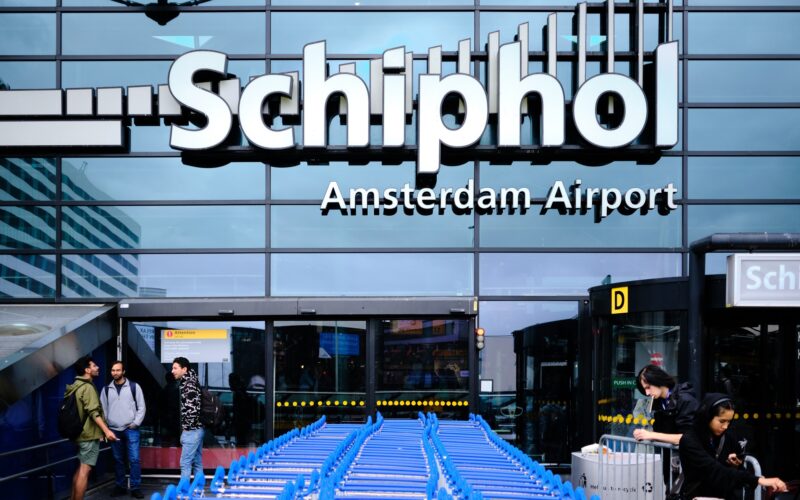Amsterdam Schiphol to ban private jets to become cleaner and quieter

The controlling company of Amsterdam Schiphol Airport (AMS) has introduced several measures to reduce the Dutch airport’s impact on the environment.
The Royal Schiphol Group, which owns AMS, Rotterdam The Hague Airport (RTM) and Lelystad Airport (LEY) and has a majority stake in Eindhoven Airport (EIN), announced eight measures that will lead to “quieter, cleaner and better aviation”.
Some of the most notable measures include a nightly curfew, prohibiting take-offs between 12:00 AM and 6:00 AM and landings between 12:00 AM and 5:00 AM, no additional runway, and banning private jet flights, as well as limiting flights operated by the “noisiest aircraft”.
“Schiphol connects the Netherlands with the rest of the world. We want to keep doing that, but we must do it better,” stated Ruud Sondag, the Chief Executive Officer (CEO) of the Royal Schiphol Group. Sondag pointed out that the only way forward for the airport is “to become quieter and cleaner more rapidly”. The executive also said that while the group has been focused on growth, its focus on the impact of that growth has been “too little”.
Sondag added: “We need to be sustainable for our employees, the local environment and the world. I realise that our choices may have significant implications for the aviation industry, but they are necessary.”
“This shows we mean business,” he concluded.
Fewer emissions
The basis of the changes is the focus on reducing CO2 and noise emissions in line with the legally binding Paris Agreement, an international treaty on climate change.
Firstly, the night-time curfew will prohibit aircraft from taking off between 12:00 AM and 6:00 AM, while no landings will take place at AMS between 12:00 AM and 5:00 AM, resulting in 10,000 fewer nightly flights. The Royal Schiphol Group also wants to reduce the number of flights allocated to the late-night or early-morning take-off/landing slots.
Secondly, the Royal Schiphol Group said it “wants to take a stricter approach regarding noisier aircraft by gradually tightening existing standards for aircraft that are allowed to take off from and land at Schiphol”. The airport holding company is also targeting private jets and small business aviation activity, stating that both activities cause a “disproportionate amount of noise nuisance and CO2 emissions per passenger (around 20 times more CO2 compared to a commercial flight)”.
While capacity will still be allocated to police and ambulance flights, the airport argued that “sufficient scheduled services are available to the most popular destinations flown to by private jets”.
The new measures will come into force by no later than 2025-2026. According to the group’s estimates, “the number of people around Schiphol experiencing severe nuisance will fall by approximately 17,500 (16%) and the number of local residents experiencing severe sleep disturbance will fall by approximately 13,000 (54%)” as a result.
No additional runway
In addition to putting restrictions on night flights and private jets, the airport has called on the Dutch government to abandon plans to build another runway.
The Royal Schiphol Group claimed that the airport, which already has six runways, “is abandoning plans for an additional runway – the parallel Kaagbaan Runway – and is asking the government to revoke the reservation”.
The group also wants to keep cargo operations at AMS, dedicating 2.5% of the total take-off and landing slots to cargo-only flights. “Due to international slot regulations, cargo flights are currently struggling to keep their slots at Schiphol,” the group noted.
“However, cargo flights will have to adhere to new, tighter rules for noisier aircraft and the new night closure will also apply to cargo,” the company added.
The group also said that the airport will also move its focus from “low costs” to an approach where “everyone at Schiphol matters”. The first step was a new social agreement with the unions, and the group is now aiming to follow through with the terms, noting that it is “important that there are good terms and conditions of employment for everyone working at the airport”.
Far-reaching consequences
In response, KLM Royal Dutch Airlines, which has its main hub at AMS, said that it believed “operations should be in balance with our surroundings and the climate”.
However, the carrier added that it was “astonished” that Schiphol is “unilaterally putting forward proposals that will have far-reaching consequences for airlines, without involving the industry parties in this process”.
KLM said: “Only through a collaborative, sector-wide approach can the aviation industry achieve a balance between its surroundings and the climate.”
The Dutch carrier said that, along with its strategic partner Delta Air Lines and other airlines operating at AMS, it will submit its views on the changes to the Ministry of Infrastructure and Water Management by June 15, 2023, at the latest. “Schiphol remains welcome to join these consultations,” the airline added.
The International Air Transport Association (IATA) had previously threatened to sue the Dutch government over its ambition to limit the number of annual flight movements to 460,000 from November 2023. Previously, the limit was 500,000 annual flight movements from/to AMS.
